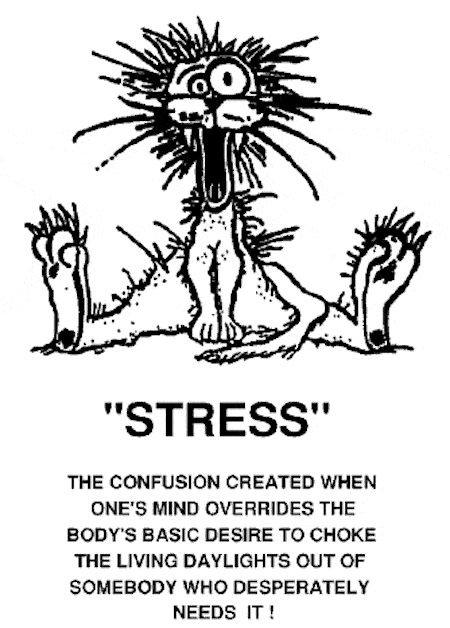We all experience stress. It’s inevitable and will always be a constant force in our life! Because that’s the case, we must use the appropriate coping mechanisms to combat it as well as understand its effects on our body.
These are five things you should know about stress:

1. There are healthy and unhealthy ways to cope with stress
Coping mechanisms for stress will either be healthy or unhealthy. The difference between the two is whether or not the strategy worsens your stress and harms your overall well-being. For example, binge drinking or using substances when stressed may ease the overwhelming emotions that come with it, but numbing stress isn’t dealing with it properly. Doing so puts you at risk for developing an addiction or a dependence on substances.
Alternatively, an example of a healthy coping mechanism would be exercising. While you still distract yourself from stress, physically moving stimulates the production of endorphins and dopamine, the body’s pain-killing chemicals that decrease cortisol, which makes exercise a natural stress reducer that both improves the state of your mind and body.
2. Stress can drive you to depression and anxiety
Extreme levels of stress are the primary catalysts of depression and anxiety. If your mind is in a constant state of worry, stress decreases the amount of the neurotransmitters dopamine and serotonin, which are the hormones in the brain that heavily influence your mood, appetite, and sleeping habits. Without the two, it becomes more to challenging to bounce back from bad days or feel motivated to accomplish even the simplest tasks.
3. Your body becomes prone to illness and disease
Aside from your mental and emotional well-being, stress also affects your body. Stress causes both short-term consequences, like headaches, digestive problems, and fatigue; and the development of chronic diseases and conditions such as cardiovascular disease, heart attack, stroke, and Alzheimer’s disease. This is because excess levels of cortisol and adrenaline are actually toxic to the body and ultimately weakens the performance of the immune system and put your body at risk for physical ailments.
4. Stress can be both good and bad
Contrary to popular belief, stress is not always a negative element in our lives. In fact, stress is separated into two categories: eustress and distress. Eustress is short-term positive stress that motivates you to accomplish a goal, improves focus and performance, and even gets you excited about the process of succeeding! Distress, on the other hand, is a negative short- or long-term stress that is entirely unpleasant to experience and challenges our abilities to cope with it.
5. Your diet will be affected by it
Last but not least, your diet has a significant influence on how you experience stress. According to scientific studies, when we’re stressed, our body loses the ability to break down fats and absorb prescription medication efficiently. As a result, this increases your toxin production which triggers cravings for food high in fat, sugar, and sodium. Subsequently, if you eat a poor diet already, your body will suffer inflammation and make you more susceptible to feeling aggravated or stressed.


[…] is a good form of stress which is called eustress. This positive stress is a short-term and motivating type of stress that helps you focus on a […]